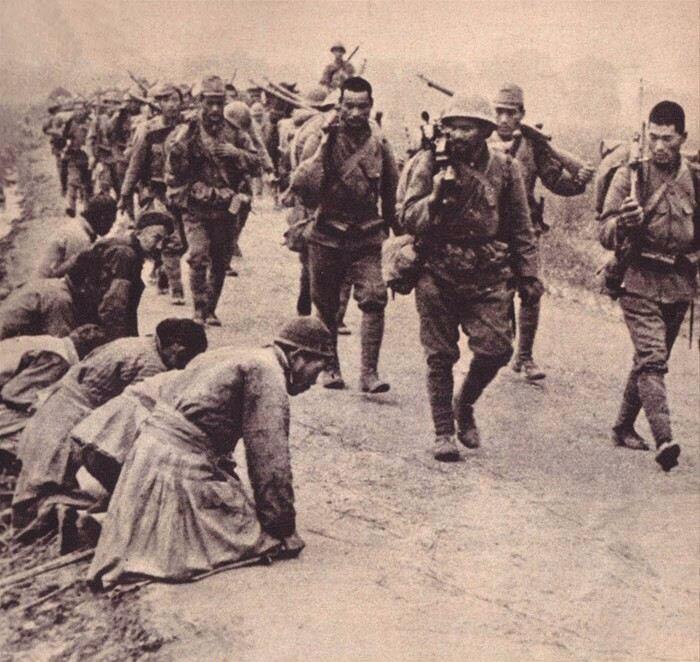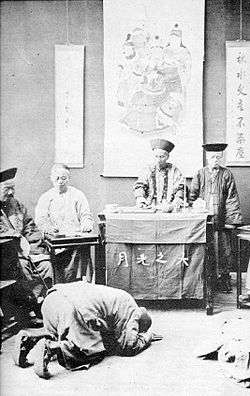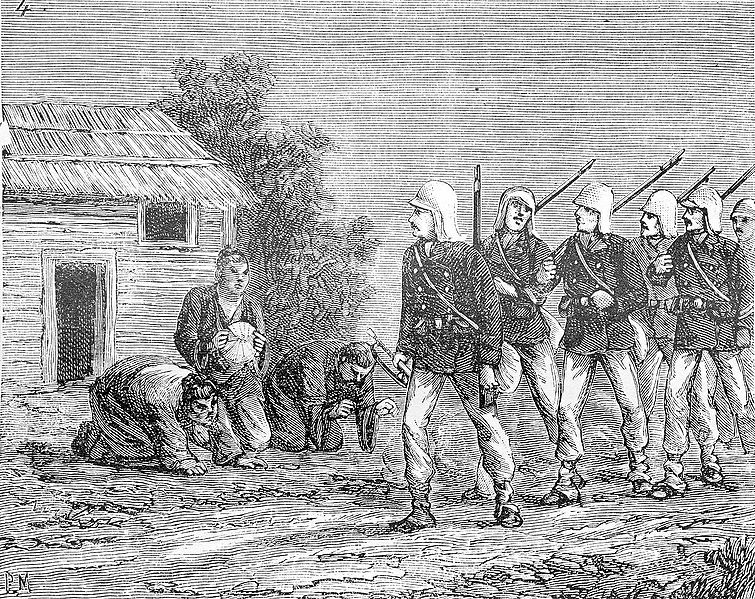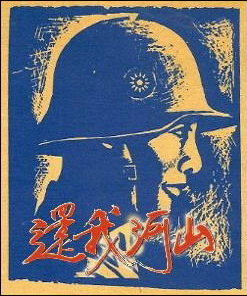Kowtowing to the Invaders
- By Peter Harmsen
- 22 June, 2014
- No Comments
 The photo above shows Chinese civilians kowtowing to Japanese infantry marching by. Whether they have been forced to do it, or if it is a voluntary attempt to avoid being targeted by an invader known for his brutality towards the local population, we don’t know. It is also possible the action was merely performed for the benefit of the photographer. The kowtowing person at the back, looking askance at the other Chinese, almost seems to be asking: “How much longer do we have to keep doing this?”
The photo above shows Chinese civilians kowtowing to Japanese infantry marching by. Whether they have been forced to do it, or if it is a voluntary attempt to avoid being targeted by an invader known for his brutality towards the local population, we don’t know. It is also possible the action was merely performed for the benefit of the photographer. The kowtowing person at the back, looking askance at the other Chinese, almost seems to be asking: “How much longer do we have to keep doing this?”
However, no matter the specific circumstances surrounding this particular photo, there is little reason to doubt that forcing Chinese in conquered areas to kowtow was one of the ways in which the Japanese military sought to signal its new position as undisputed master in the parts of China that had fallen under its control in the period after the outbreak of full-scale war in the summer of 1937. There are two reasons for this.
First, kowtowing was a traditional gesture in East Asia and especially in China to show not only respect, but direct submission. You had to kowtow to the emperor, and you also had to kowtow to representatives of imperial power, such as the Qing-Dynasty court on the image to the right. Kowtowing was particularly galling to patriotic Chinese in the 1930s because it had been dismissed after the fall of the empire a quarter century before as an outdated practice unworthy of the citizens of a modern society.
Secondly, and more important to the Japanese, kowtowing was a way to force subjected peoples to demonstrate their obedience to imperial rulers. The image below shows exactly that situation. It is from 1884 and illustrates the advance of French infantry in what is now Vietnam. Not long after the picture was published in France, the Japanese would be trying hard to emulate the western imperialists, hoping to carve out their own colony on the Asian mainland, and they must have thought that kowtowing natives, along with pith helmets and long riding boots, simply belonged to the experience of running an overseas empire.




 Copyright © 2025
Copyright © 2025
Leave a Reply